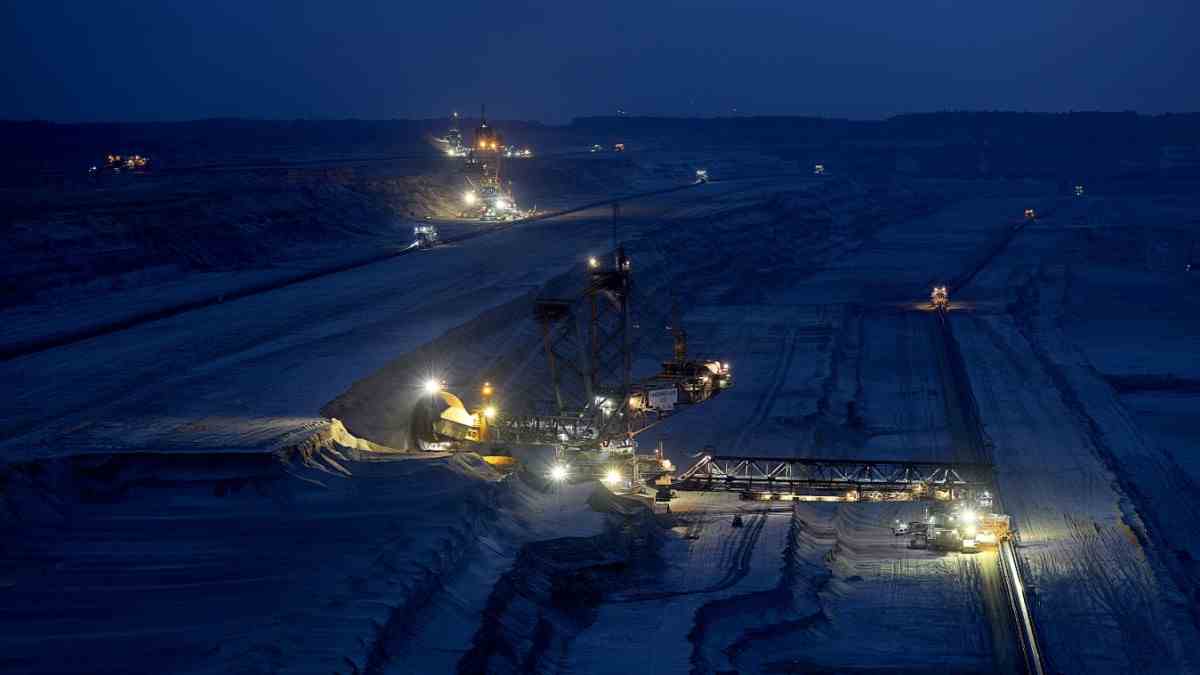When RWE shut down three lignite-fired power plant blocks in the Rhineland at the turn of the year, the group thanked the workforce for more than four decades of electricity generation. Externally, of course, the sign was important: the phase-out of coal is continuing, and brown coal, which is particularly harmful to the climate, is being gradually replaced.
But this year, significantly higher gas prices and especially the Russian attack on Ukraine are changing the energy market: even without an embargo on imports from Russia, electricity producers are burning less gas in their power plants. RWE, for example, produced 18 percent less electricity from gas in the first few months of this year than in the same period last year; the company operates gas-fired power plants primarily in Great Britain and Germany. Because gas is still the most important fuel in Germany’s heating systems, and many branches of industry also need gas as a raw material and energy source.
In return, RWE generated two percent more electricity from lignite in the first quarter than in the same period of the previous year, even though power plant blocks went offline. The remaining piles were simply better utilized. It is true that power plant operators in the EU have to buy emission rights for the many greenhouse gases they emit; that’s just happening with lignite. On the other hand, electricity has also become more expensive. And companies like RWE can also buy CO₂ certificates years in advance.
While the comeback of coal is annoying from an environmental point of view, the federal government is currently examining pragmatically how Germany can become independent of gas imports from Russia as quickly as possible. Among other things, it is also considering whether operators such as RWE could keep coal-fired power plants on standby longer or switch them off later than previously planned. “However, the decision is made solely by politicians,” says RWE CFO Michael Müller. His group stands by the coal exit, which the federal government has so far decided for the year 2038 at the latest. If the government wants to advance the exit to 2030, RWE is available for talks.
The nuclear profit is “unexpectedly really big again,” comments a large investor
For Germany’s largest energy supplier Eon, however, the high prices are initially a burden. The company outsourced its large gas and coal-fired power plants to Uniper a few years ago and separated from it; Since then, Eon has focused on networks and sales. Now the group has to buy expensive energy – and try to increase its own tariffs. “We at Eon are not immune to at least temporary consequences for our business,” states CEO Leonhard Birnbaum. The company is preparing for all conceivable scenarios. “A possible European gas shortage is also part of it.”
However, Eon will also be operating one last nuclear power plant by the end of this year: Isar 2 near Landshut. In the first quarter, this one reactor alone brought in almost as high operating profits as the then three nuclear power plants from Eon in the same period last year. The group refers to higher market prices. The profit from nuclear power production was “unexpectedly really big again this year,” comments Thomas Deser from Union Investment, the fund company of the Volks- und Raiffeisenbanken.
Nuclear power plants Isar 1 and Isar 2 from Eon: Germany will phase out nuclear energy by the end of this year.
(Photo: Armin Weigel/dpa)
But even if the last nuclear and coal-fired power plants in Germany are steaming up again this year, they will become increasingly insignificant for the figures of the two largest energy companies. Eon earned 90 percent of its operating profits from networks and distribution earlier this year.
RWE, in turn, is generating more and more green electricity halfway around the world: with solar parks in Australia, hydroelectric power in Germany or biomass in the Netherlands. The company recently commissioned new wind farms in Texas and off the coast of England. “RWE is growing – exclusively in green core businesses,” says Board Member Müller. Renewable energy sources accounted for around 30 percent of RWE’s generation capacity in the first quarter. They already contribute the majority of the Group’s operating profits.
However, European sanctions against Russia are not without consequences for RWE. For example, Britain sanctioned Russian railways in March. Since RWE is active in Great Britain, coal from Russia has not been accepted since then. As a result, the company had to write off the value of a supply contract that would actually have run until 2025. “The loss adds up to around 850 million euros,” states Müller. But RWE can cope, thanks to renewables – and coal.

